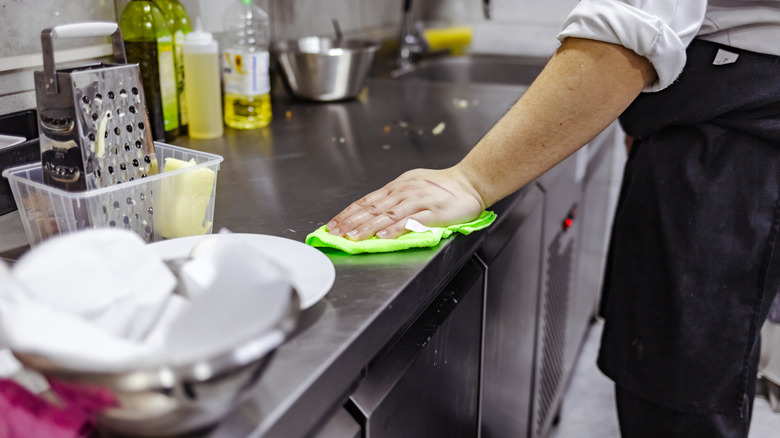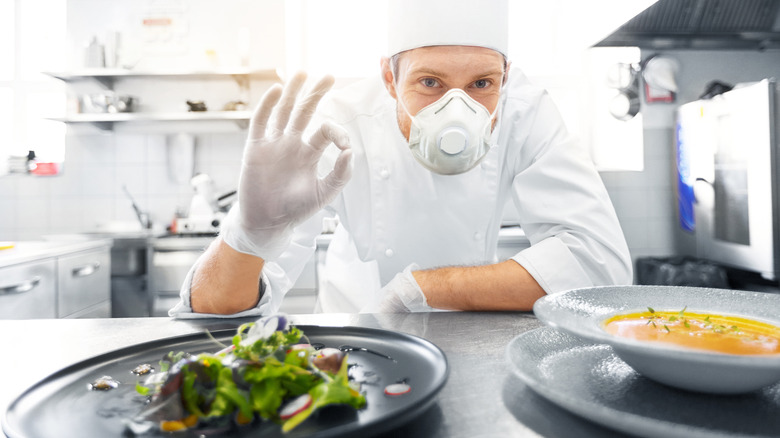Food Safety Precautions Declined After The Pandemic, New Data Shows
Not to be a pessimist, but the public is fickle, and after COVID-19-related restrictions began to lift, folks got lax about handwashing ... kind of quickly. Maybe you internet-searched the phrase "proper handwashing technique" back in 2020, and maybe you even sent the link to a family member or friend. But, according to new findings revealed at the 2023 Nation's Restaurant News Food Safety Symposium, that vigilance has faded like a summer sunset — even in restaurants.
Hazel Analytics analyzed the data from 2 million restaurant inspections conducted between September 2022 and September 2023, and lax handwashing was the top cause of FDA food code violations (which also probably underscores why an annual Food Safety Symposium is necessary at all). Other offenders included erroneous cold-holding temperatures and improper sanitization of surfaces that come into direct contact with food. In total, 66% of these violations posed the risk of a foodborne illness outbreak.
Many restaurants have closed or greatly reduced their hours since the pandemic, which may have reduced the number of opportunities for food safety missteps. In 2021, the USDA's Food Safety and Inspection Service received fewer reports of food recalls, which could have meant good news if folks were getting stricter about hygiene practices. Or, on the flip side, it could mean that folks were overwhelmed with other variables and should-be-recalls were slipping through the cracks. A CDC report from earlier this year found that 40% of food poisoning in restaurants is linked to workers who came in sick.
Restrictions eased, and so did folks' vigilance
It's worth noting that preventative health and safety measures like handwashing have generally declined as pandemic restrictions have eased. By 2022, strict handwashing procedures had already significantly dropped off from two years prior. The amount of daily handwashing reported by Americans fell by about 25%. The Food Standards Agency also recorded a drop in the U.K. during that period and noted that handwashing facilities are often unusable or unavailable to customers (or else just not super common practice) in many non-restaurant food service establishments like cafes, pubs, clubs, and sports arenas. Consumer behavior is another major factor. Many foodies started eating at home more during the pandemic (a trend that has largely stuck around), which has also lowered restaurant visits and potentially reduced the number of possible incidents.
A lot has changed over the years. Still, the professional kitchen has remained a high-volume, high-speed, high-stress arena, and when peak performance is crucial (especially in the competitive modern dining scene), "background" practices like handwashing and sanitizing can fall by the wayside. As a refresher, according to the CDC, it's a good idea to wash your hands before, during, and after preparing food, and to scrub vigorously for 20 to 30 seconds. (You should be able to hum "Happy Birthday" twice.)

